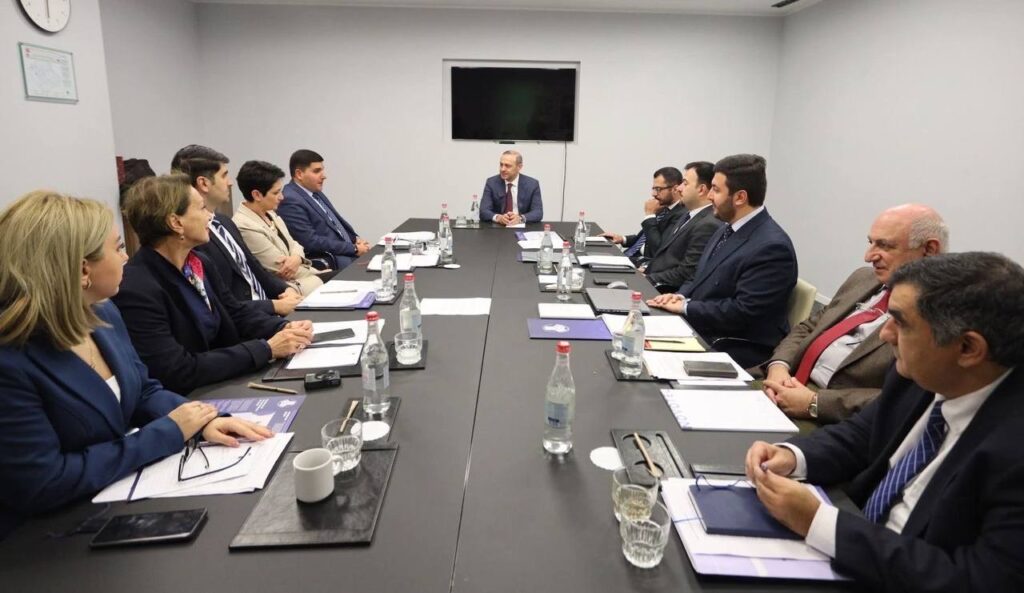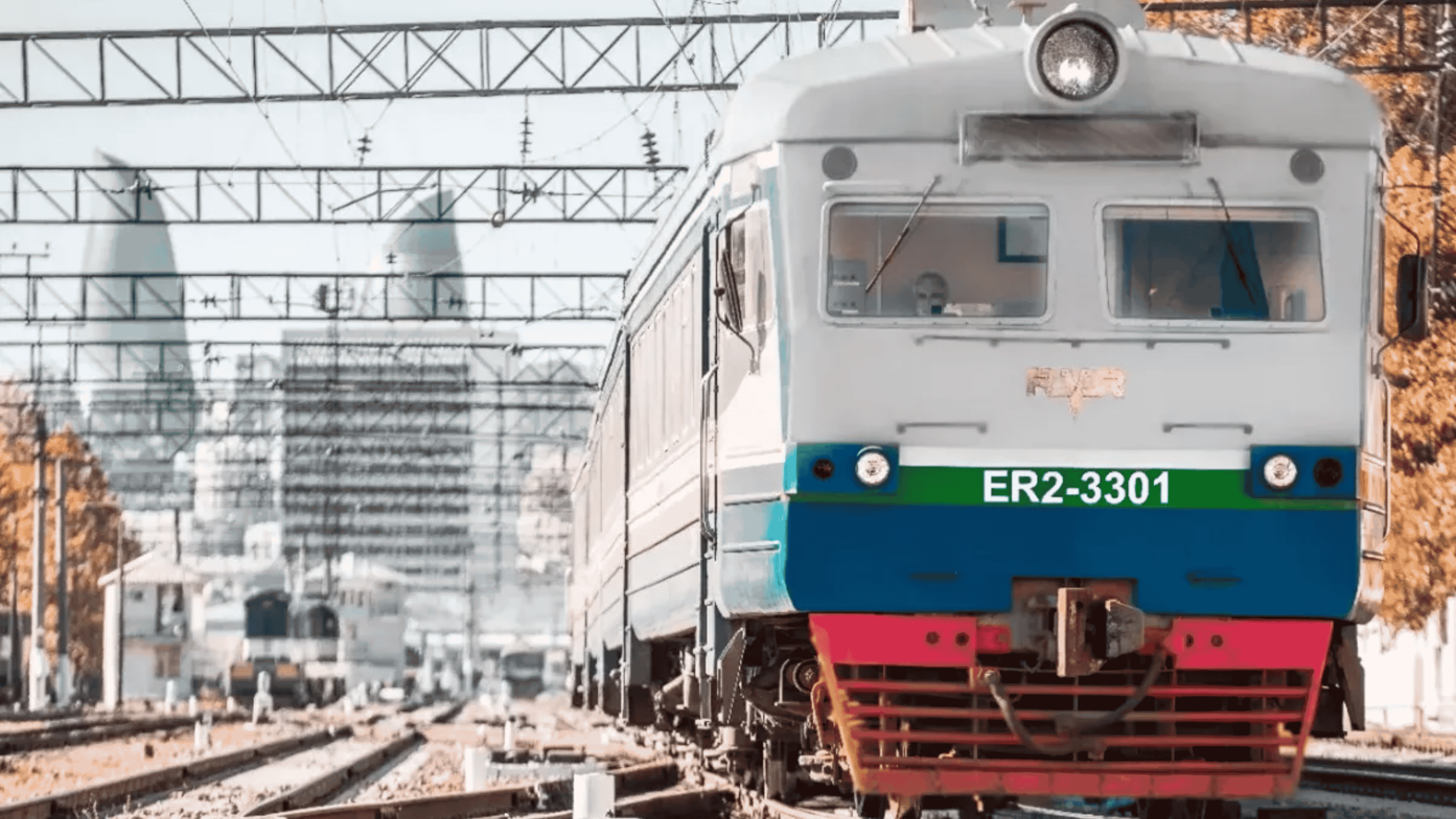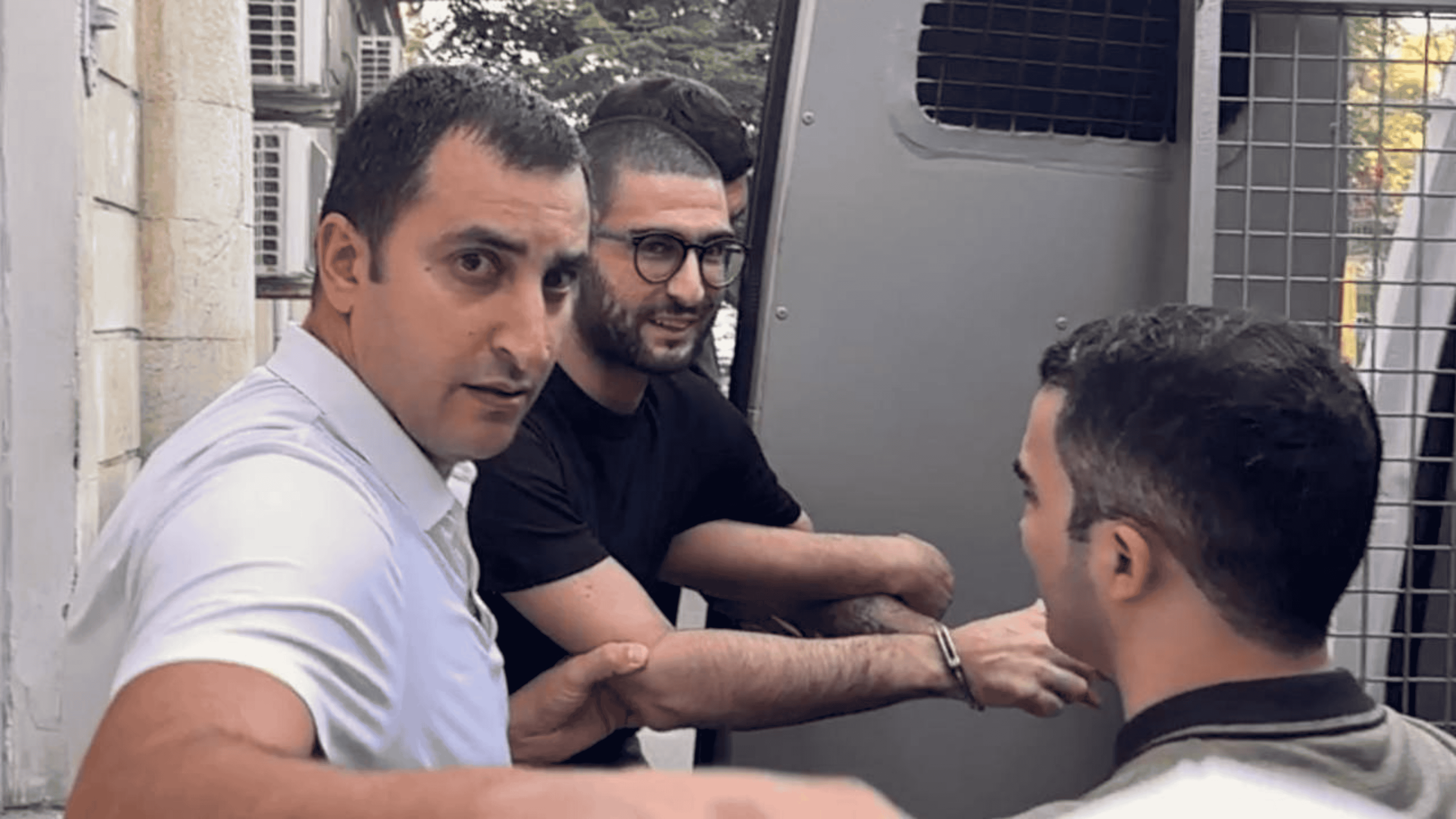Azerbaijani and Armenian NGOs in Yerevan: Dialogue for peace or a symbolic gesture? Views from Baku
Meeting of Azerbaijani and Armenian NGOs
Representatives of civil society from Azerbaijan and Armenia who took part in a unique meeting held in Yerevan on October 21–22 – the first in more than 30 years of conflict between the two countries – said that the goal of the “round table” was to rebuild trust between the peoples and discuss the role of civil society in the peace process.
However, many independent Azerbaijani experts say that the composition of the participants, at least from Azerbaijani side, and the conditions of the meeting raise doubts about the real impact of this process. JAMnews spoke with several of these experts — their comments are below.
From Azerbaijan, participants included Farhad Mammadov, head of the Center for South Caucasus Studies; Rusif Huseynov, director of the Topchubashov Center; Ramil Iskenderli, chairman of the board of the National NGO Forum; Kamala Mammadova, editor-in-chief of the First News portal; and Dilara Efendiyeva, head of the Center for Women, Peace and Security.
From Armenia, participants included Areg Kochinyan, Boris Navasardyan, Naira Sultanyan, Narek Minasyan, and Samvel Meliksetyan.

Participants of the meeting: “The goal is to determine how civil society can support the peace process”
Rusif Huseynov, Director of the Topchubashov Center, told Radio Azadliq that the aim of the meeting was to develop a mechanism for public support of the peace process:
“It’s important to define how civil society can contribute to the peace process and help ensure its sustainability. We plan to carry out joint projects on various topics and hold regular meetings in the future. New experts, analysts, journalists, and other NGOs should join the process to make it more effective.”
From Armenia, the meeting included Boris Navasardyan, head of the Yerevan Press Club, who said the initiative was aimed at restoring informal channels of communication beyond official diplomacy:
“Since this format of meeting is being held for the first time, it’s too early to assess its real impact. What matters is that the views of the civil sector on the peace process reach decision-makers in both Baku and Yerevan.”
Navasardyan added that the meeting’s agenda covered key issues of Armenian–Azerbaijani relations:
- Signing of a final peace agreement
- Border delimitation
- Opening of transport communications
- Humanitarian issues related to missing persons
- Restoration of contacts in border regions
Independent experts’ view: “People’s diplomacy under control”
Human rights defender Arzu Abdullayeva, long known for her peace initiatives, believes that the effectiveness of the meeting depends on a balanced composition of participants and a focus on reconciliation-oriented topics:
“The main goal is to influence public perceptions and eliminate hostile rhetoric. Both sides have been stigmatized, and now it’s necessary to develop ways to overcome these stereotypes.
If civil society and the government do not work together and in coordination, there will be no real results.”
Conflict analyst Arif Yunus, meanwhile, views the meeting as an example of “controlled people’s diplomacy.” According to him, since independent civil society in Azerbaijan has been dismantled, such initiatives are largely formal:
“Independent journalists and NGO representatives should take part in these meetings — but they are either in prison or have been forced to leave the country. That’s why these processes cannot build genuine trust.
This meeting is more of a symbolic exercise, kept under the authorities’ control.”
Context: Arrests, control, and a shrinking civic space
Over the past two years, around 50 journalists, NGO leaders, and civil activists have been arrested in Azerbaijan on various charges. The authorities claim they committed crimes, but international organizations view these arrests as politically motivated.
In August this year, Azerbaijan and Armenia initialed a peace agreement. The document envisions condemning ethnic hatred and discrimination, implementing confidence-building measures, and restoring channels of mutual communication.
Experts say these provisions will only be effective if all segments of society are genuinely involved in the process – including journalists, independent experts, women’s and youth organizations, and residents of border regions.
The sustainability of the peace process depends not only on intergovernmental agreements but also on reducing public hostility and fostering mutual empathy.
Independent experts agree that the participation of independent voices is crucial.
Otherwise, such meetings will remain merely symbolic gestures in history.
News in Azerbaijan




















